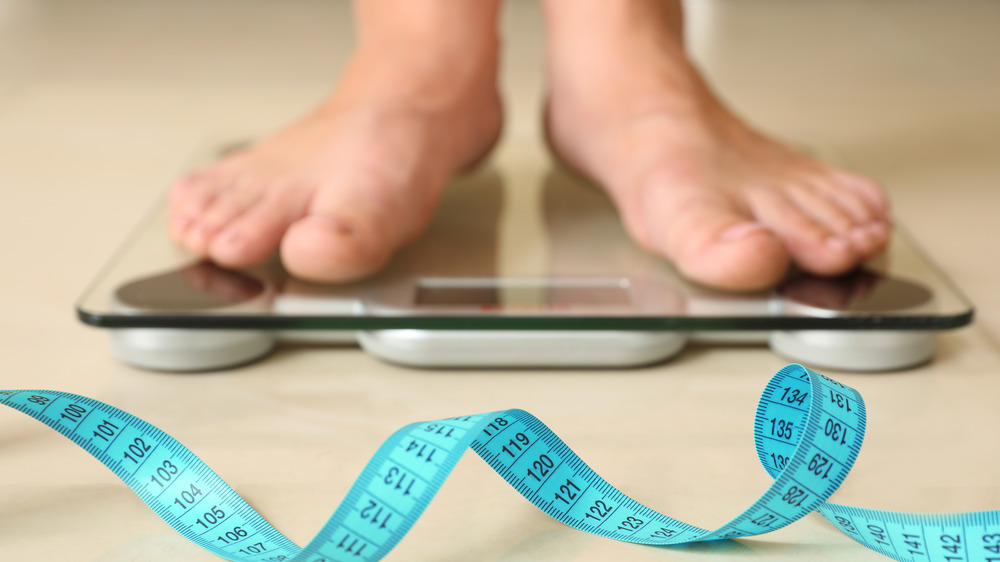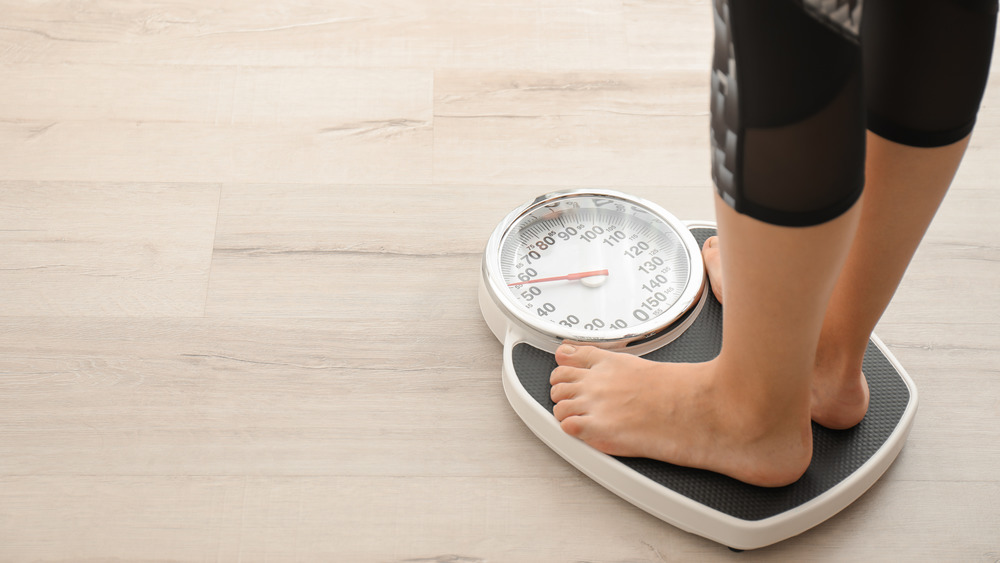This Is What Happens When Your Body Plateaus
Whether you've experienced a sudden plateau in your weight loss, your strength-building, or your fitness routine, most of us have had a moment where we realized our current routines simply are no longer allowing us to make any more progress towards a certain goal. It's a frustrating feeling, knowing that you're doing something that was working well until it simply wasn't, and it's hard to know how you should shift to continue to make progress. Before you completely change your routine (or give up altogether), it's important to understand why your body hits plateaus and what it's trying to tell you.
When your body hits a plateau in weight loss, there are a few causes. First is a simple numbers game: If you're eating the same thing most days, keeping your calories or macros in check, and you're eating the same amount that you were when you first started losing weight, you might be eating too much for your current metabolic needs. As your weight decreases, your daily caloric need also may decrease, unless you're also exercising. You may need to reassess your caloric intake or start to increase your activity levels in order to see the scale start to move again (via WebMD).
What else can cause a plateau?
If your plateau is more fitness-based — you're not getting faster on your runs, you're not losing weight despite sticking with your exercise routine, or you're stuck on a certain weight in the gym while strength training — you may need to switch things up. Our bodies are shockingly good at adapting to what we ask them to do, so if you've been jogging three miles every day at the same pace, you may have great weight loss results and naturally start speeding up at first, but you'll likely hit a point where you're not getting any faster, or dropping any more weight. That's because you need to change up your routine. You may need to sprinkle in some speed work, or add a bit more distance on certain days, or even try something new, like a bootcamp class. In some cases, your body may actually need a rest day once a week to recover so you can push a bit harder the next time you're out for a run. Don't be afraid to switch up your routine to get out of the fitness rut (via Sweat.com).
Lastly, if the plateau is persisting despite your best efforts, you may want to check in with a doctor: WebMD notes that there are underlying issues like gland and thyroid disorders, as well as hormonal changes like starting menopause, that can leave your scale stuck. Even certain medications or other habits that you're changing, like quitting smoking, can be to blame.

